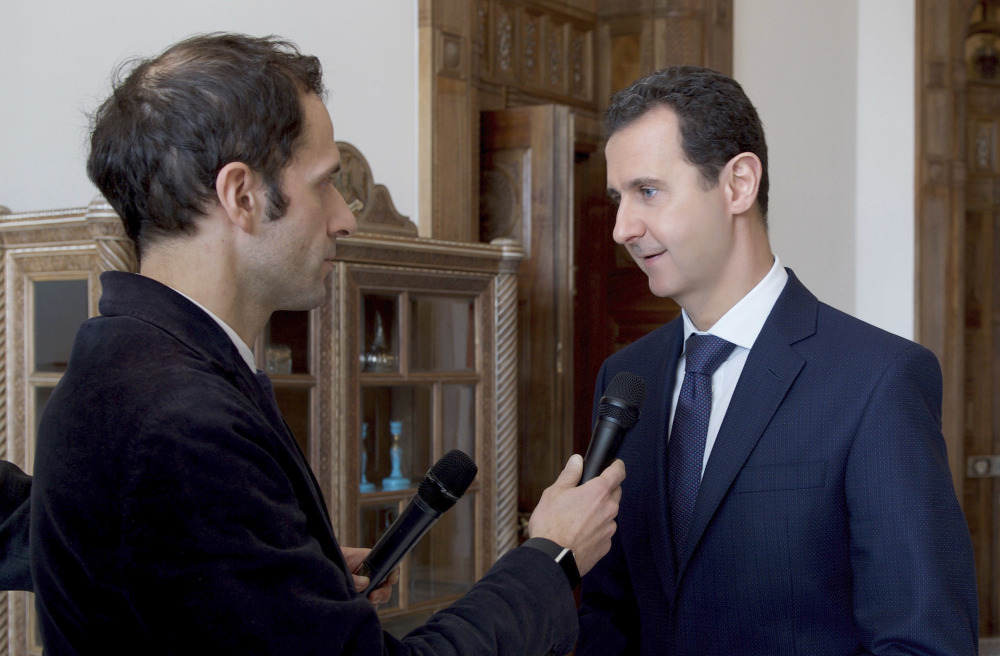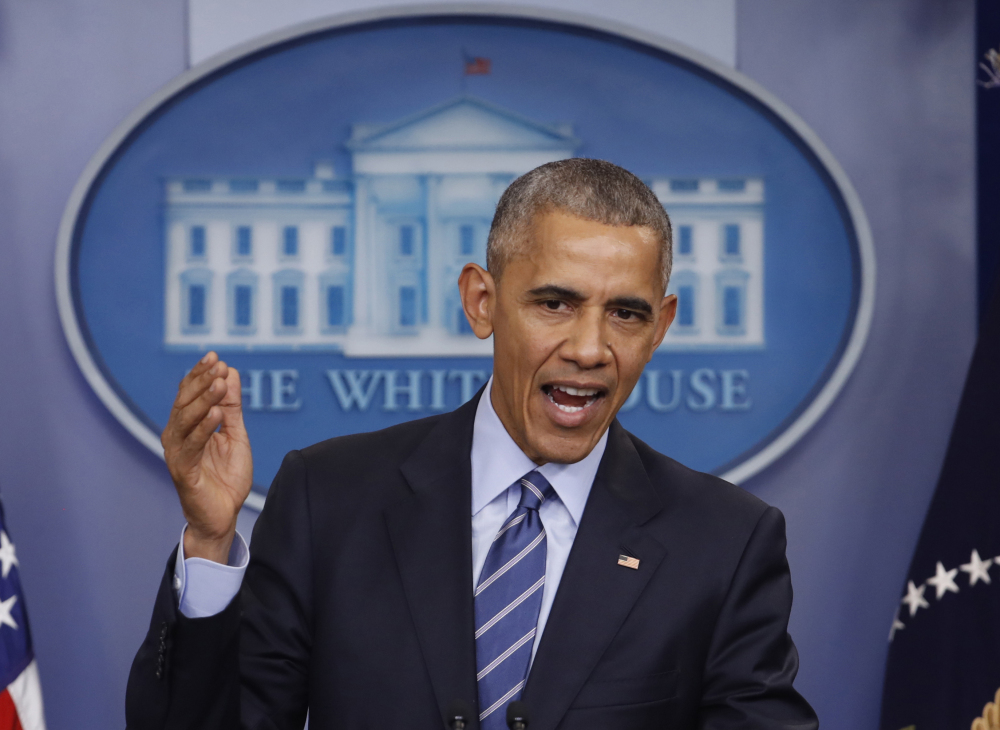BEIRUT — A Russian-Turkish plan to end the war in Syria got off to a shaky start Friday with the partial implementation of a new cease-fire agreement that excludes for now any involvement of the United States.
There are hopes that this peace attempt will work after countless U.S.-backed efforts have failed, in part because the United States is not involved. Russia, which is now the most influential power in Syria, is taking the lead in the initiative, and President Vladimir Putin has staked his prestige on a successful outcome.
Turkey, which is the other main partner in the process, has far more leverage over the rebels than the United States ever did, mostly because it controls the border they depend on for supplies of weaponry.
But continued fighting in the Damascus area marred the first day of the truce, serving as a reminder that the government of President Bashar al-Assad always has been a reluctant party to cease-fire efforts that threaten to interfere with government advances.
Loyalist forces intensified an assault launched last week against Wadi Barada, a rebel-held pocket of territory in the countryside west of Damascus, dropping barrel bombs and firing artillery into the remote, mountainous area, according to the Britain-based Syrian Observatory for Human Rights.
There was also continued fighting around the besieged neighborhoods of eastern Damascus, where government forces have been making progress in recent weeks.
“It’s not in Assad’s interests for there to be a cease-fire, because Assad is moving slowly and steadily to secure his control over the Damascus countryside,” said Nicholas Heras of the Center for a New American Security.
The truce is more likely to work, Heras said, in the northern areas of Syria, where the recent victory by loyalist forces over the rebels in Aleppo has tilted the balance of power in favor of the Russian-backed government and given Turkey an incentive to sign onto a deal that preserves its influence along its southern border.
There, and in other parts of the country where the fighting ebbed, Syrians took advantage of the lull to stage anti-government demonstrations. Such protests were held every Friday in the early days of the uprising against Assad’s rule but were abandoned after the government started targeting the protests with airstrikes.
The cease-fire is just one step in a wider initiative sponsored by Russia and Turkey that aims to bring the factions together for peace talks next month in Astana, capital of Kazakhstan.
The broad outlines of the peace proposal differ little from similar efforts launched last year by the United States, which envisaged that a cease-fire would be followed by peace talks in Geneva.
As was the case with the U.S.-backed efforts, details of the Russian plan remain vague. It is unclear what kind of settlement Moscow is hoping will emerge from the process, who will attend the talks and, most significantly, whether rebels who wield power on the ground will be invited.
Rebel groups are assuming they will be included, and most have decided for now to throw their support behind the process, said Yasser al-Youssef of the rebel group Noureddine al-Zinki, one of the groups that did not sign the cease-fire agreement but has nonetheless decided to support it.
“Nobody trusts the Russians at all. But no one has explicitly said they will not comply with the cease-fire,” Youssef said. “There is a lot of upset regarding the failure of the West in brokering a cease-fire, so the entire Arab world is looking to this process and hoping for the best.”
Altogether, 13 rebel groups signed the cease-fire agreement, but many more are lending their support, he said.
The truce excludes the extremist Islamic State, which controls territory in the east of the country, and the al-Qaeda affiliate Jabhat Fatah al-Sham, formerly known as Jabhat al-Nusra, which is present in almost all of the rebel-held areas that are covered by the cease-fire.
Iran’s role also will be crucial in determining the success of the cease-fire. Russia has included Iran as one of the three main sponsors of the peace process, and Iranian Foreign Minister Mohammed Javad Zarif posted a tweet Friday expressing his support for the cease-fire, calling it “a major achievement.”
“Let’s build on it by tackling the roots of extremist terror,” he added.
But Iran, which wields influence through the many Iranian-backed militias fighting on the ground on Assad’s behalf, especially around Damascus, has not featured as prominently in the negotiations as Russia and Turkey.
The most powerful of the Iranian backed groups, Lebanon’s Hezbollah militia, issued a statement Friday saying that regardless of any future agreements reached, it will not withdraw from Syria. Hezbollah’s withdrawal is a key demand of the rebel groups.
The process therefore seems likely to be beset by many of the same problems that scuttled U.S. efforts to secure a settlement, Heras said.
Send questions/comments to the editors.




Success. Please wait for the page to reload. If the page does not reload within 5 seconds, please refresh the page.
Enter your email and password to access comments.
Hi, to comment on stories you must . This profile is in addition to your subscription and website login.
Already have a commenting profile? .
Invalid username/password.
Please check your email to confirm and complete your registration.
Only subscribers are eligible to post comments. Please subscribe or login first for digital access. Here’s why.
Use the form below to reset your password. When you've submitted your account email, we will send an email with a reset code.